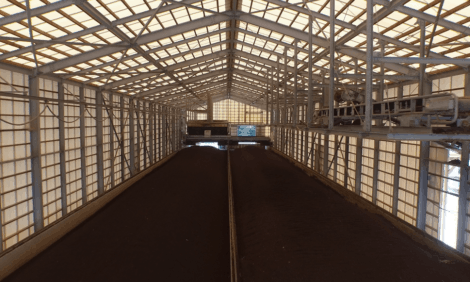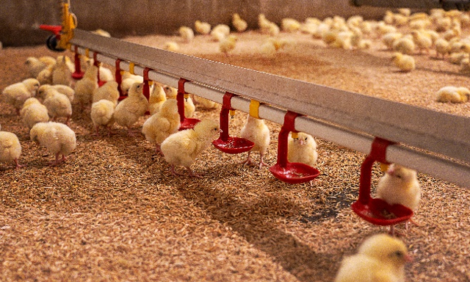



Bacteriophage may solve Salmonella colonization in broiler chickens
Salmonella colonization in broiler chickens could be tackled by bacteriophage according to ground-breaking research to be revealed at the Poultry Science Association Annual Meeting.A collaborative research project by AB Agri and the University of Leicester, centered around the delivery of bacteriophage – the natural viruses of bacteria – in animal feed.
Tests demonstrate a low dose of phage reduced the Salmonella count to below detection limits – a result that could have far-reaching impact in poultry production and food hygiene.
Professor of Microbiology at the University of Leicester, Martha R. J. Clokie, said: “This study offered us an opportunity to further explore one of the exciting emerging themes in bacterial virus research. The results highlight phages as a promising tool to target bacterial infections in poultry.”
AB Agri’s Director of Innovation, Nell Masey O’Neill said: “Food-borne diseases, including Salmonellosis in humans, are a significant world health challenge. According to the World Health Organization almost 1 in 10 people fall ill and 33 million of healthy life years are lost every year. This study shows that phage may be a useful weapon against this challenge, helping our industry produce safer food.
“Furthermore, our industry has been responsible by taking growth-promoting antibiotics out of poultry diets, but that leaves us with gut health challenges. Phages could offer a potential solution, so we were keen to explore the possibilities with academic partners at the University of Leicester.”
The research abstract “Assessing the efficacy of bacteriophage therapy to reduce Salmonella colonization in broiler chickens” will be shared at the Poultry Science Association meeting by Dr Anisha Thanki from Leicester University’s Department of Genetics and Genome Biology.









